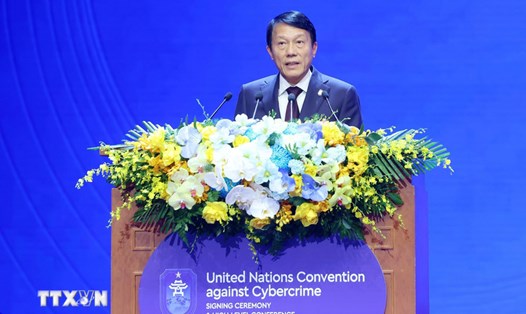The strong wave of digital transformation opens up great opportunities for economic sectors in Vietnam, but also causes businesses to face increasingly sophisticated cyber risks.
Pursuing the goal of becoming a digital country by 2030, Vietnam has actively built a specialized legal framework and invested heavily in the field of cybersecurity in recent years, but challenges are still increasing. In 2024, nearly half of domestic businesses recorded Hacking incidents, while Kaspersky reported blocking more than 19.8 million web threats nationwide.
In the world, 88% of organizations have encountered cyber incidents and 42% admit that human errors are part of the cause. Many units still rely only on basic virus extinguishers or firewalls. Meanwhile, employees often lack cybersecurity knowledge and the internal IT team is too thin to handle. Cybercriminals make full use of these loopholes using tools such as AI-based fraud, malware blackmail and data theft.
The cost of fixing the problem has also increased. Major corporations in the world are currently spending an average of $6.2 million a year on consequences, higher than the cost of prevention. Although the exact figures in Vietnam may be different, it is clear that the budget and regulations are not enough to create a truly safe zone. What is needed is an operating model that helps turn monitoring data into quick and efficient response capabilities. That protective layer is the Cyber Security Operations Center (SOC).
SOC - Optimal operating model for enterprise security
SOC plays the role of the enterprise's cybersecurity operation center. This model gathers human factors, processes and technology at the same time. The purpose is to monitor, detect, investigate and respond 24/7 to all risks.
Not stopping at simply collecting logs or firewall warnings, SOC also applies advanced analysis tools such as SIEM, XDR, proactively tracking threats and automating responses, helping to prevent risks early before they explode and cause damage.
In Vietnam, the value of SOC is clearly demonstrated in many key industries:
Finance: Reputation and trust are the foundation of all transactions. Just one incident could bring that down. SOC provides continuous monitoring, helping to prevent fraud and spread attacks.
Energy and utilities: Just a few minutes of interruption can impact the national supply system, such as water and energy. SOC helps detect risks early and react quickly to ensure essential services always operate stably.
Telecommunications: As the backbone of the digital economy, network operators face the risk of large-scale distributed denial of service (DDoS) attacks. SOC helps identify and handle attacks before affecting a wide-ranged connection.
Production and supply chains: Play a key role in boosting exports and creating jobs. A malware attack at the factory could spread to the entire global partner system. SOC helps isolate and control incidents, protecting both the production line and brand reputation.
Despite differences in characteristics, all industries need a proactive, continuous and rapid-reacting monitoring system. SOC helps businesses shorten the gap between limited professional capacity and sophisticated threats, turning disjointed defense into a proactive, unified and flexible model.
cybercrime is still a constant challenge in Vietnam. The application of SOC is the key for domestic enterprises to maintain stable operations and strengthen digital trust," said Mr. Ngo Tan Vu Khanh, Country Director in Vietnam of Kaspersky.











